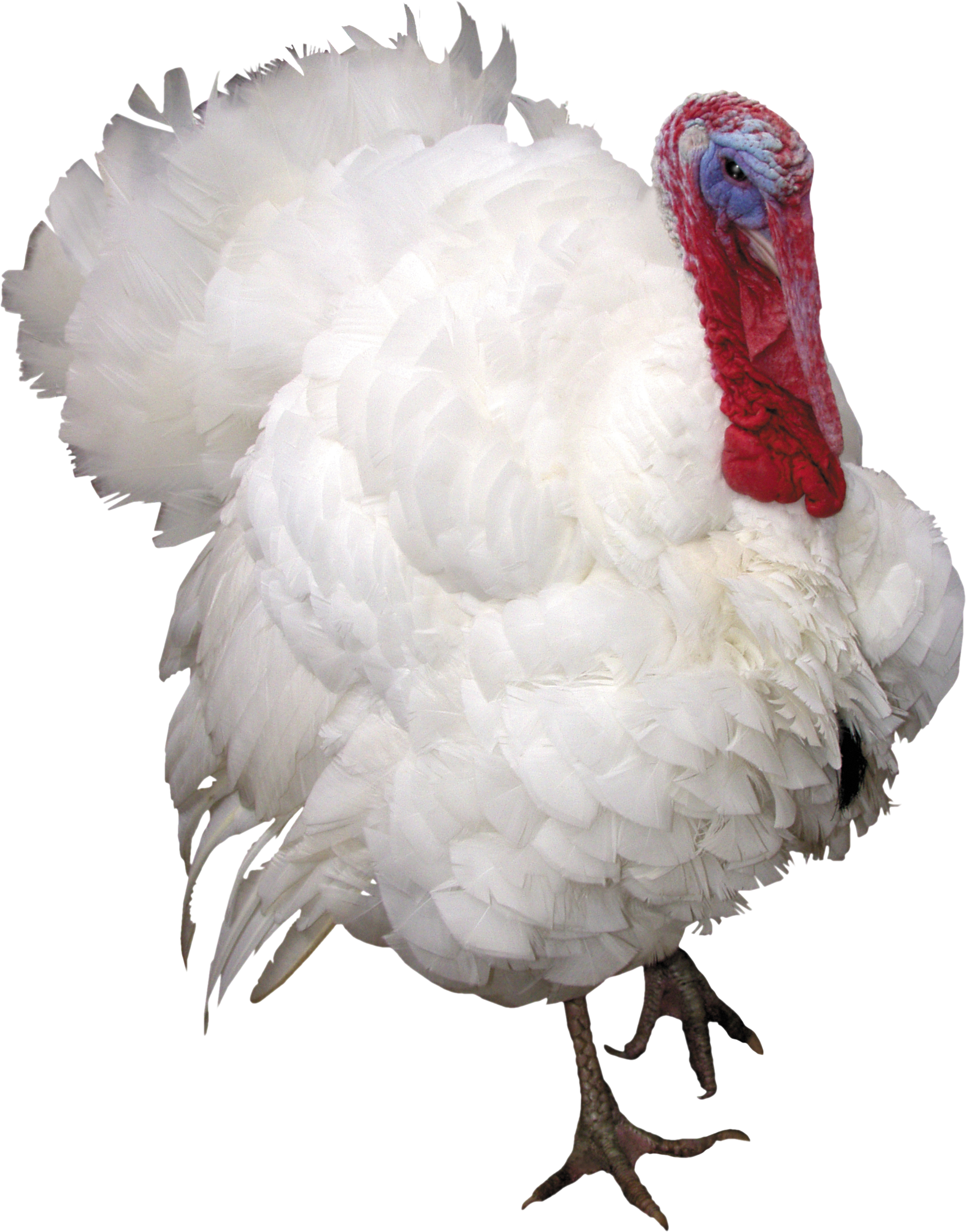
This image has format transparent PNG with resolution 2121x2706.
You can download this image in best resolution from this page and use it for design and web design.
Turkey bird PNG with transparent background you can download for free, just click on download button.
The turkey is a large bird in the genus Meleagris, which is native to the Americas. Males of both turkey species have a distinctive fleshy wattle or protuberance that hangs from the top of the beak (called a snood). They are among the largest birds in their ranges. As in many galliformes, the male is larger and much more colorful than the female.
Turkeys were domesticated in ancient Mexico, for food and/or for their cultural and symbolic significance. The Aztecs, for example, had a name for the turkey, a word still used in modern Mexico in addition to the general term pavo. Spanish chroniclers, including Bernal Diaz del Castillo and Father Bernardino de Sahagun, describe the multitude of food (both raw fruits and vegetables as well as prepared dishes) that were offered in the vast markets (tianguis) of Tenochtitln, noting there were tamales made of turkey, iguana, chocolate, vegetables, fruit and more. The ancient people of Mexico had not only domesticated the turkey but had apparently developed sophisticated recipes including these ingredients— many used to this day— over hundreds of years .
There are two theories for the derivation of the name "turkey", according to Columbia University professor of Romance languages Mario Pei. One theory is that when Europeans first encountered turkeys in America, they incorrectly identified the birds as a type of guineafowl, which were already being imported into Europe by Turkey merchants via Constantinople and were therefore nicknamed Turkey coqs. The name of the North American bird thus became "turkey fowl" or "Indian turkeys", which was then shortened to just "turkeys".
A second theory arises from turkeys coming to England not directly from the Americas, but via merchant ships from the Middle East, where they were domesticated successfully. Again the importers lent the name to the bird; Middle Eastern merchants were called "Turkey merchants" as much of that area was part of the Ottoman Empire. Hence the name "Turkey birds" or, soon thereafter, "turkeys".
In 1550, the English navigator William Strickland, who had introduced the turkey into England, was granted a coat of arms including a "turkey-cock in his pride proper". William Shakespeare used the term in Twelfth Night, believed to be written in 1601 or 1602. The lack of context around his usage suggests that the term was already widespread .
Other countries have other names for turkeys. Many of these names incorporate an assumed Indian origin, such as diik Hindi ("Indian rooster") in Arabian countries, dinde ("from India") in French, индюшка (indyushka) ("bird of India") in Russia, indyk in Poland, and Hindi ("India") in Turkey. These are thought to arise from the thought that Christopher Columbus had originally believed that he had reached India rather than the Americas on his voyage. In Portuguese a turkey is a peru; the name is thought to derive from the eponymous country Per?.
Several other birds that are sometimes called turkeys are not particularly closely related: the brushturkeys are megapodes, and the bird sometimes known as the "Australian turkey" is the Australian bustard (Ardeotis australis). The anhinga (Anhinga anhinga) is sometimes called a water turkey, from the shape of its tail when the feathers are fully spread for drying.
An infant turkey is called a "chick", "poult" or "turklette".
In this page you can download free PNG images: Turkey PNG images free download